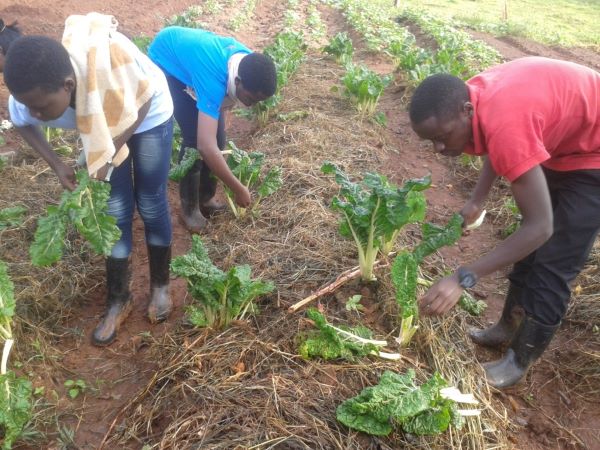We have reached a critical juncture in history.
Global temperature rises and related climate shocks are having unprecedented and possibly irreversible effects on agricultural systems, undermining food security and nutrition worldwide.
While this will affect us all, the greater threat is to rural populations and small-holder farmers in rural areas of developing countries where approximately 80 per cent of the world’s poorest people live.
Without increased investment in these rural communities, we have no hope of ending global hunger and poverty by 2030.
Small-scale farmers produce one third of the world’s food and up to 70 per cent of the food in low and middle-income countries. They are crucial to global, national and local food security. Yet, too often they are among the world’s poorest and hungriest people.
Climate change and conflict make the situation worse. Drought or extreme flooding can impoverish a rural family unexpectedly. While emergency aid is essential to save lives and livelihoods in crisis situations, investment in small-scale farmers empowers and stabilises rural communities and rural economies, boosting resilience today and for the long term, while also contributing to inclusive growth and sustainable development.
Throughout the year, the governments of Angola and France have championed the International Fund for Agricultural Development (IFAD), a specialized United Nations agency and international financial institution that invests in rural development and across food systems to help small-scale farmers produce more food and in greater variety, access markets, apply new technologies and adapt to climate change. IFAD is most committed to investing in those at risk of being left behind.
In hosting the fourth replenishment consultation with IFAD Member States over the past two days in Paris, Angola and France are leading the call for an ambitious replenishment of IFAD’s financial resources while also setting an example by announcing significant contributions (Angola $4 million and France $150 million). To date over 48 IFAD Member States have contributed to this important call to mobilize $2 billion in new financing, which will help IFAD meaningfully improve the lives of over 100 million rural people and double its impact by 2030. A significant $1.076 billion has already been reached, and more announcements should follow before IFAD’s Governing Council in February.
IFAD has the unique ability to leverage contributions across 100 countries it works in, turning every dollar of core contributions into six dollars of investment on the ground. Building on its AA+ credit rating, IFAD has been able to mobilize further funds through private borrowing and connecting with global capital markets, the first UN specialized agency to do so.
IFAD’s impact is measurable and indisputable. Even in this era dominated by technology, most of the world’s population depend on the food sector for their livelihoods. With the right funding to enable rural communities to adapt to the unprecedented global challenges we face today, they can continue feeding themselves and their nations and bolster global food security overall. IFAD´s work strengthens the resilience of rural economies to future shocks, highlighting the pivotal role of strategic policymaking in charting a course towards a more sustainable and inclusive rural regions.
Today, we, IFAD, Angola and France, call upon nations worldwide to increase their support for rural areas and future global food security. We urge more investment to transform food systems so that they provide adequate, affordable and nutritious food for everyone, without compromising ecosystems and our planet. This call is urgent. Current projections indicate that 575 million people will still be living in extreme poverty, and 670 million will face hunger by 2030. Alarming climate trends further underscore the need for immediate action, with a 3-degree temperature rise looming and the critical 1.5-degree target slipping away.
Investing in rural communities today through IFAD means investing in a better tomorrow for us all.








